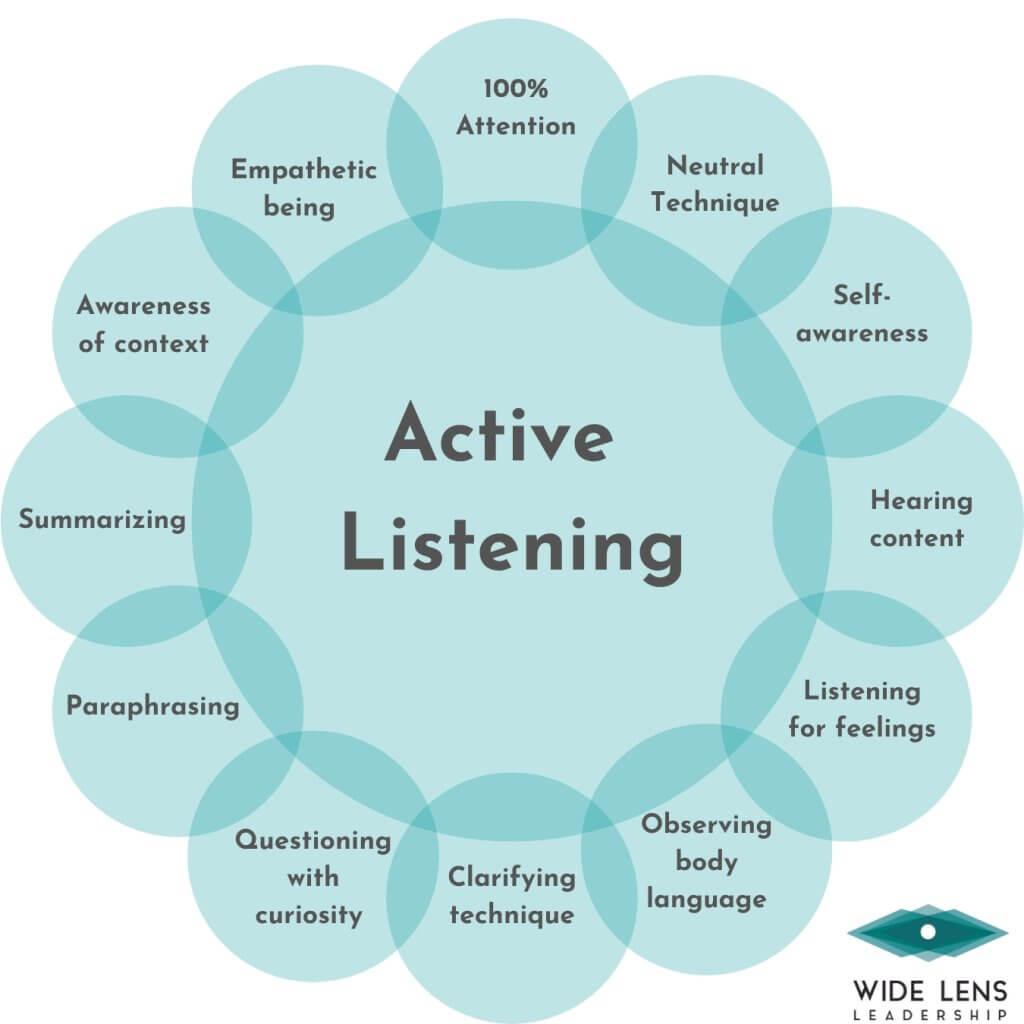Title: Mastering the Art of Questioning: How to Ask Questions Effectively in Online Courses
In the ever-evolving landscape of online education, the ability to ask the right questions can be a game-changer.Whether you’re a student striving to grasp complex concepts or an educator looking to foster deeper engagement, effective questioning can unlock a world of understanding.Think about it: have you ever felt lost in a lecture, desperate for clarity, yet hesitant to raise your hand in a virtual setting? You’re not alone! The digital classroom can sometimes feel isolating, but asking questions doesn’t have to be intimidating. In fact, it’s an essential skill that can enhance your learning experience and enrich discussions for everyone involved.In this article, we’ll explore practical strategies for crafting thoughtful questions that not only clarify your doubts but also stimulate meaningful dialog. So, let’s dive in and discover how you can transform your online learning experience, one question at a time!
Understanding the Importance of Asking Questions in Online Learning
Asking questions is a fundamental component of the online learning experience. It serves as a bridge connecting students wiht instructors, fostering a dynamic exchange of ideas and clarifications that enhances understanding. In the virtual classroom, where non-verbal cues are often absent, the ability to articulate inquiries becomes even more crucial. When students engage in this practice, they empower themselves to take control of their learning journey.
Effective questioning can lead to deeper insights and a more enriched educational experience. Here are a few reasons why asking questions is vital:
- Clarification: Questions help clarify concepts that might potentially be confusing, allowing students to grasp the material fully.
- Engagement: They promote active participation, which is essential in an online setting where distractions are plentiful.
- Critical Thinking: Formulating questions encourages deeper thinking and analysis, prompting students to reflect on what they’ve learned.
- Feedback: Questions provide valuable feedback to instructors, helping them adjust their teaching methods to better suit students’ needs.
To maximize the benefits of asking questions, it’s meaningful to be mindful of how you frame them. Consider incorporating open-ended questions that promote discussion and invite varying perspectives. Instead of asking, “Is this correct?” try framing it as, “How does this concept relate to what we learned last week?” This not only showcases your understanding but also encourages your peers to engage in meaningful dialogue.
Additionally, leveraging different platforms for questioning can enhance your learning experience. For instance, consider these methods:
| Method | Description |
|---|---|
| Discussion Forums | Post your questions in forums to reach a wider audience and foster community engagement. |
| Live Q&A Sessions | utilize these opportunities to ask real-time questions and receive immediate feedback. |
| Email Instructors | For more personalized inquiries,direct emails can provide clarity on complex topics. |
Ultimately, the act of asking questions not only enriches your own learning experience but also contributes significantly to the collective knowledge of the online learning community. So, don’t hesitate to speak up. Your curiosity is a powerful tool that can lead to profound discoveries and connections within the digital classroom.

choosing the right Moment to Raise Your Questions
Timing is crucial when it comes to raising your questions in an online course setting. The virtual environment can often feel isolating, which might lead you to hesitate before speaking up. Yet, asking questions at the right moment can significantly enhance your learning experience. Here are some strategic moments to consider:
- After a Key Concept is Introduced: This is often when your mind is still processing the new information. If something isn’t clear, it’s likely others are feeling the same way. Don’t wait too long; this is your chance to clarify.
- During Interactive Sessions: If your course includes breakout rooms or group discussions, use this time to ask questions. Engaging with peers frequently enough leads to deeper understanding and shared insights.
- After a Presentation: once a lecture or presentation wraps up, ask your questions. The instructor is still in the context of the topic, making it easier to get precise answers.
- When Assigned New tasks: New assignments can sometimes be overwhelming. Asking questions about the expectations or guidelines can set you up for success.
Additionally, consider the dynamics of your online class. If you notice that others are hesitant to ask questions, take the initiative. your question might just be the catalyst for a more vibrant discussion.remember, instructors appreciate when students are engaged and curious; it shows that you’re invested in your learning.
Moreover, be mindful of the course schedule. If you know a topic is going to be covered in more depth later, it might be beneficial to save your question for that moment. Conversely, if the session is nearing its end, make sure to ask before time runs out. Keep a notebook handy to jot down questions as they arise so you don’t forget them!
raising questions is an art that requires not just curiosity,but also awareness.By understanding when to ask and being strategic about it, you can maximize your learning and foster a collaborative environment in your online courses. Remember, your inquiries contribute to a richer educational experience for everyone involved.
Crafting Clear and Concise Questions for Better Responses
When engaging in online courses,the quality of your questions can significantly affect the quality of the responses you receive.Crafting questions that are clear and concise not only saves time but also enhances the learning experience for both you and your instructors or peers. A well-structured question allows others to grasp your inquiry quickly and respond with the most relevant information.
Consider these strategies when formulating your questions:
- Be Specific: Vague questions lead to vague answers. Instead of asking, “Can you explain this topic?”, try “Can you clarify how the theory of relativity applies to modern physics?”
- Provide context: Offering background information helps others understand your perspective. As a notable example, “In our last discussion about quantum mechanics, I was confused about wave-particle duality. Can someone explain that concept further?”
- Use Simple Language: Avoid jargon unless necessary. Aim for clarity over complexity; your goal is to foster understanding.
Additionally, structuring your questions can make a world of difference. Here’s a simple table showcasing effective question formats:
| Question type | Example |
|---|---|
| Clarification | “Can you elaborate on the main points of the lecture on climate change?” |
| Application | “How can we apply the principles of economics to real-world scenarios in our project?” |
| Connection | “How does this week’s material relate to what we learned last month about supply and demand?” |
Lastly, don’t hesitate to ask follow-up questions. They show your engagement and willingness to delve deeper into the subject matter. For instance, after receiving an initial response, you might ask, “That makes sense! Can you provide an example to illustrate your point?” This not only reinforces your understanding but also encourages a richer dialogue.
By honing your ability to ask effective questions, you not only enhance your own learning but also contribute positively to the collective knowledge of your online course community. Embrace this prospect to foster meaningful interactions and watch your educational experience flourish!

Leveraging Discussion Boards to Enhance Your Inquiries
Discussion boards serve as a virtual gathering place where ideas, questions, and insights can freely flow among students and instructors. Engaging actively in these forums not only enhances your learning experience but also fosters a sense of community.When you approach these platforms with the right strategies, you’ll find that asking questions becomes a powerful tool for diving deeper into your inquiries.
To make the most of discussion boards,consider the following strategies:
- Be Specific: Instead of asking broad questions,narrow your focus. As a notable example, rather than saying, “Can someone explain this concept?” you might ask, “Can anyone clarify how the principle of supply and demand impacts market prices in real-life scenarios?”
- Encourage Dialogue: Pose open-ended questions that invite others to share their perspectives. Questions like, “What challenges have you faced when applying this theory?” can spark meaningful conversations.
- Reference Course Materials: When framing your inquiries, cite specific readings or lectures. This shows that you’re engaged with the material and provides context for your question.
Moreover, responding to others’ posts is just as vital as asking your own questions. By doing so, you can:
- build Relationships: Engaging with fellow students creates connections that can enhance collaborative learning.
- Gain Diverse Perspectives: When you respond to others, you may uncover new angles and insights that deepen your understanding of the topic.
Here’s a simple table to illustrate how responding to peers can enrich your learning:
| Peer Response | Learning Benefit |
|---|---|
| Asking for clarification on a classmate’s post | Deepens comprehension and fosters critical thinking |
| Sharing personal experiences related to a topic | Encourages application of theory to real-life situations |
| Providing constructive feedback on a fellow student’s idea | Promotes a culture of supportive learning |
Ultimately, the goal is to create an engaging and supportive environment where questions lead to exploration and revelation. By leveraging the full potential of discussion boards, you can transform your inquiries into rich dialogues that enhance your understanding and retention of course material.
Utilizing private Messaging for More Personal Engagement
In the world of online courses, personal engagement can frequently enough feel elusive. However,the power of private messaging can transform the way you interact with your instructors and peers,making your learning experience more meaningful and effective. By leveraging direct communication, you can clarify doubts, seek feedback, and build a rapport that enhances your understanding of the subject matter.
When you have a question, consider reaching out through private messaging instead of posting in the public forum. This approach not only allows for a more tailored response but also fosters a sense of intimacy in the conversation.Here are some benefits of using private messaging:
- Focused Attention: Instructors can provide detailed answers without the noise of multiple discussions.
- Comfort and Privacy: You might feel more at ease asking sensitive questions one-on-one.
- Timely Feedback: Direct messages frequently enough elicit quicker responses, helping you stay on track.
Moreover, private messaging can be a great way to connect with fellow students. Forming study groups or collaborating on projects can be simpler when you start a private chat. Here’s how you can maximize these interactions:
- Be Respectful: Always start with a polite greeting.
- Be Specific: Clearly articulate your question or the topic you wish to discuss.
- follow Up: If someone helps you, offer thanks and share how their advice made a difference.
To illustrate the potential of private messaging, consider this simple comparison:
| Public Forum | private Messaging |
|---|---|
| Multiple opinions, frequently enough conflicting | Personalized responses tailored to your question |
| Delayed responses due to many participants | Quicker feedback from a single source |
| Less privacy for sensitive topics | Safe space to discuss personal concerns |
By embracing the use of private messaging, you’re not just asking questions; you’re building relationships that enhance your educational journey. So,the next time you have a query,don’t hesitate to reach out in a more personal way. Your learning experience will thank you!
Encouraging Peer Interaction Through Thoughtful Questions
One of the most effective ways to foster a vibrant online learning environment is through thoughtful questioning. When students are encouraged to engage with each other via questions, it transforms the learning experience from a passive absorption of information to an active exchange of ideas. This not only enhances comprehension but also builds a sense of community among peers.
To stimulate meaningful discussions, it’s important to ask open-ended questions that require more than a simple yes or no answer. Here are some questions types that can encourage deeper thinking:
- Reflective Questions: “How did your perspective change after reading this material?”
- Analytical Questions: “What are the underlying assumptions behind this theory?”
- Comparative Questions: “How does this concept relate to what we studied last week?”
Additionally, consider implementing a question-sharing strategy during discussions. Students can post their questions in a discussion forum before class, allowing others to respond and build on each other’s insights. This not only diversifies the range of perspectives but also encourages those who may be hesitant to speak up in real-time discussions. Here’s a simple framework for structuring this approach:
| Step | Action | Outcome |
|---|---|---|
| 1 | Post a question | Stimulates initial thoughts |
| 2 | Respond to peers | Fosters collaborative learning |
| 3 | Summarize key insights | Consolidates knowledge |
it’s essential to model curiosity by demonstrating your own engagement with the material. When instructors share their thought processes and pose intriguing questions, it sets a tone of inquiry that encourages students to do the same. By cultivating an atmosphere where curiosity is celebrated, you empower learners to take ownership of their educational journey and actively participate in discussions, leading to richer interactions.

Following Up: How to keep the Conversation Going
Keeping the conversation alive in an online course is essential for fostering a collaborative learning environment.When you engage with your peers and instructors, you not only enhance your understanding but also enrich the overall experience for everyone involved. Here are some effective strategies to ensure that your discussions remain vibrant and productive:
- Ask Open-Ended questions: Rather of questions that can be answered with a simple ‘yes’ or ‘no’, opt for those that require more elaboration. For example, instead of asking, “Do you agree with this point?”, try, “What are your thoughts on how this concept applies to real-world scenarios?”
- Utilize Follow-Up Questions: After receiving a response, take the conversation further.If someone shares their experience, ask them, “How did that impact your understanding of the subject?” This shows that you value their input and are eager to delve deeper.
- Encourage Diverse Perspectives: Invite others to share their viewpoints, especially if they differ from the majority.You might say, “I appreciate the insights shared so far. Does anyone have a contrasting view that could enrich our discussion?”
Another key aspect of keeping the dialogue flowing is to actively participate in discussions. This can be achieved by:
- Responding Promptly: Engage with others in a timely manner.If someone posts a question, try to respond quickly to keep the momentum going.
- Referencing Previous Conversations: When making a new point, link it back to something previously discussed. As a notable example, “Building on what Sarah mentioned last week about time management, I believe…” This not only shows you are attentive but also provides continuity.
- Sharing Resources: If you come across articles, videos, or other materials related to the topic, share them with your classmates. You might say, “I found this article on cognitive load theory really insightful; I think it complements our recent discussions well!”
To visualize how these strategies can be implemented, consider the following table:
| Strategy | Example Question | Expected Outcome |
|---|---|---|
| Open-Ended Questions | What challenges have you faced in applying this concept? | Encourages detailed responses and sharing of experiences. |
| Follow-Up Questions | Can you expand on that idea? | Deepens understanding and promotes critical thinking. |
| Diverse Perspectives | What do you think might be an choice view? | Stimulates debate and broadens viewpoints. |
By implementing these techniques, you can create a dynamic and engaging dialogue that not only enhances your learning but also encourages your peers to participate actively.Remember, the goal is to build a community where everyone feels cozy sharing their thoughts and questions, leading to a richer educational experience.

Being Open to Feedback and Different perspectives
In the digital learning environment, the ability to embrace feedback and diverse viewpoints is crucial. When your engaged in online courses, each question you pose opens a door to deeper understanding and collaboration. Consider feedback as a valuable resource that can enhance your learning experience and help you grow academically and personally. When you invite different perspectives, you’re not just broadening your horizons; you’re also enriching the discourse within your learning community.
Here are some key strategies to cultivate an open mindset:
- Embrace Constructive Criticism: Instead of viewing criticism as a personal attack, see it as a chance to improve. Ask yourself how you can apply the feedback to your future inquiries.
- Encourage Diverse Opinions: When discussing topics, actively seek out classmates with different viewpoints. This not only enhances your understanding but also fosters a more inclusive environment.
- be Willing to Adapt: If you notice that your approach to questioning isn’t yielding fruitful results, be flexible and try new techniques. Experimenting can lead to unexpected insights.
To visualize the impact of varying perspectives, consider the following table:
| Feedback Type | Impact on Learning |
|---|---|
| Peer Feedback | Encourages collaborative learning and strengthens community bonds. |
| instructor Feedback | Provides expert insights and guidance tailored to individual needs. |
| Self-reflection | Promotes personal growth and self-awareness in the learning process. |
By actively seeking input and being open to different opinions,you position yourself to gain not only knowledge but also the ability to think critically. Remember, every question you ask is a stepping stone toward a more profound understanding of the subject matter. Your willingness to engage with feedback can significantly enhance your learning journey, making it richer and more rewarding.

The Role of Active Listening in Effective Questioning
Active listening is a crucial skill that enhances the quality of questions asked during online courses. When you engage in active listening, you are not merely waiting for your turn to speak; you are genuinely absorbing the information presented. This approach allows you to formulate questions that are not only relevant but also insightful. Here are some essential aspects of active listening that can significantly improve your questioning technique:
- Focus on the Speaker: Pay close attention to the instructor’s words, tone, and body language. This attention helps you identify themes or concepts that may require further clarification.
- Reflect and Clarify: After listening, reflect on what you heard. Don’t hesitate to ask clarifying questions that demonstrate your understanding or seek additional information on unclear points.
- Respond Appropriately: Use your understanding of the material to ask deeper, more thoughtful questions. This not only shows respect for the speaker but also enriches the learning experience for everyone involved.
When listening actively, you create a dialogue rather than a monologue, which is essential in a virtual learning environment. Consider using the following techniques to enhance your active listening skills:
| Technique | Description |
|---|---|
| Summarizing | Briefly restate what the speaker has saeid to confirm understanding. |
| Paraphrasing | Rephrase the speaker’s points in your own words to ensure clarity. |
| Asking Follow-Up Questions | pose questions based on the speaker’s answers to delve deeper into the subject. |
Furthermore,active listening fosters a respectful and engaging online atmosphere.By demonstrating that you value the speaker’s insights, you encourage more open communication and participation. This positive environment not only benefits you but also enhances the overall experience for your peers. The more you practice active listening, the more effective your questions will become, leading to richer discussions and a deeper understanding of the material.
Lastly, remember that effective questioning is a two-way street. Your commitment to listening actively not only improves your questioning skills but also encourages others to reciprocate. As a result, you create a dynamic learning community where everyone feels heard and empowered to participate. So the next time you attend an online session, put these active listening techniques into practice, and watch how your ability to ask effective questions transforms the learning experience.

building Confidence to Speak Up in Virtual Classrooms
In the dynamic environment of virtual classrooms, speaking up can often feel like a daunting task. However, building confidence to express your thoughts and ask questions can greatly enhance your learning experience. Here are some strategies to help you find your voice in the digital space:
- Prepare Ahead: Familiarize yourself with the course material before classes.This preparation allows you to formulate questions that are relevant and insightful.When you feel educated, it’s easier to engage.
- Practice Active Listening: Pay close attention to your instructors and peers. Engaging with the discussion will not only provide you with more context but also help you identify gaps in your understanding, prompting questions to ask.
- Utilize Chat Features: If speaking up feels overwhelming, start by using the chat function to submit your questions.This can serve as a comfortable stepping stone to verbal participation.
- Set Small Goals: Aim to ask at least one question per session. Gradually increasing your participation can significantly boost your confidence.
- Embrace Mistakes: Remember that everyone is learning together. don’t fear making mistakes; they are a natural part of the learning process and can lead to valuable discussions.
Here’s a simple table to illustrate the impact of asking questions during online courses:
| Aspect | Impact of Asking Questions |
|---|---|
| Comprehension | Enhances understanding of complex topics |
| Engagement | Increases interaction with instructors and peers |
| Confidence | Builds self-assurance in virtual environments |
| Networking | Facilitates connections with classmates and instructors |
Lastly, consider the environment in which you learn. Ensure that your setup is conducive to participation. A quiet space, a working microphone, and a reliable internet connection can make a significant difference. By adopting these practices, you can transform your experience in virtual classrooms and unlock the door to deeper learning and connection.
Frequently Asked Questions (FAQ)
Q&A: How to ask Questions Effectively in Online Courses
Q1: Why is it important to ask questions in online courses?
A1: Great question! Asking questions is crucial in online learning because it helps clarify concepts, fosters engagement, and deepens your understanding of the material.When you ask questions, you not only get the answers you need but also contribute to a more dynamic learning environment for everyone. Remember,if you’re curious about something,chances are,others are too!
Q2: What types of questions should I ask?
A2: Aim for open-ended questions that encourage discussion. Instead of just asking, “What is the definition of X?”, try something like, “How does X apply in real-world scenarios?” This approach not only gives you information but also opens the floor for different perspectives and deeper insights. Don’t be afraid to follow up on answers to dig even deeper!
Q3: How can I frame my questions to get better responses?
A3: framing is key! Start by providing some context before asking your question. such as, rather of saying, “Can you explain this?” you might say, “I’ve been struggling to understand the concept of Y after the last lecture. Can you help clarify how it relates to Z?” This gives your instructor or peers a clearer starting point, making it easier for them to provide a meaningful response.
Q4: Is there a “right” time to ask questions in an online course?
A4: Absolutely! Timing can make a big difference. Try to ask questions during designated Q&A sessions or after a lecture when the material is fresh.If something is bothering you while you’re watching a recorded lecture, jot it down and bring it up in the next live session. Remember, participation is key, so don’t hesitate to make your voice heard!
Q5: What if I feel shy or nervous about asking questions?
A5: It’s completely normal to feel a bit shy! Remember, your questions are valid, and everyone in your course is there to learn just like you are. Try using chat features or forums to ask questions asynchronously if that feels more comfortable. You can also practice your question in advance or even reach out to classmates for support. The more you engage, the more confident you’ll become!
Q6: How can I encourage others to ask questions too?
A6: That’s a splendid initiative! you can start by modeling good questioning behavior. Share your queries openly and encourage your peers to do the same.you might say, “I have a question about our last assignment—does anyone else feel the same way?” Creating a supportive atmosphere where everyone feels comfortable asking questions can greatly enhance the learning experience for everyone involved.
Q7: how can I follow up on the answers I receive?
A7: Following up is crucial! If you receive an answer that piques your interest, don’t hesitate to ask for more details or examples. You could say, “Thanks for that answer! Can you elaborate on how that concept applies in different contexts?” This not only helps you gain a deeper understanding but also shows your instructor and peers that you’re actively engaged and eager to learn.
Wrapping Up
Asking questions effectively can transform your online learning experience. By framing your queries thoughtfully, participating actively, and fostering a supportive environment, you’ll not only enhance your understanding but also contribute to a richer, more collaborative classroom. So go ahead, don’t hold back—your questions are the key to unlocking knowledge!
The Conclusion
As we wrap up our discussion on asking questions effectively in online courses, remember that your curiosity is your greatest ally in the learning process. Engaging with your instructors and peers not only deepens your understanding but also fosters a vibrant online learning community. So, don’t hesitate to speak up—whether it’s through a chat box, discussion forum, or during live sessions.
Imagine the connections you can make and the insights you’ll gain just by asking the right questions! Embrace the art of inquiry as a tool for your educational journey. The more you practice, the more confident you’ll become, and before you know it, you’ll be inspiring others to do the same.
so, go ahead—put these tips into action and watch how they transform your online learning experience.After all, every great conversation begins with a question, and the best learners are those who dare to ask. Happy learning, and remember, your questions are the keys to unlocking new knowledge!




